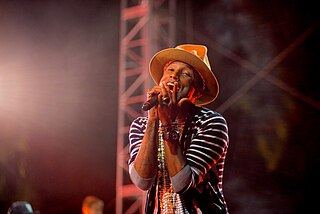 W
WMargaret Thatcher gained power in 1979 and began 18 years of Conservative government. Victory in the Falklands War (1982) and the government's strong opposition to trade unions helped lead the Conservative Party to another three terms in government. Thatcher initially pursued monetarist policies and went on to privatise many of Britain's nationalised companies such as British Telecom, British Gas Corporation, British Airways and British Steel Corporation. She kept the National Health Service. The controversial Community Charge, used to fund local government was unpopular and the Conservatives removed Thatcher as Prime Minister in 1990.
 W
WThe UK Albums Chart is a music chart compiled by the Official Charts Company (OCC) that calculates the best-selling albums of the week in the United Kingdom. Initially based solely on the sales of albums in the vinyl and CD formats, digital albums began being included from April 2006. Since March 2015, the chart has also been based on audio streaming figures, however the OCC still compiles a 'sales' (only) chart and still quotes these traditional sales figures in its features and articles. Note: The 21st century actually began in 2001.
 W
WThe UK Singles Chart is a music chart compiled by the Official Charts Company (OCC) that calculates the best-selling singles of the week in the United Kingdom. Since 2005, the chart has been based on the sales of both physical and digital singles, initially on the condition that the single was available in both formats. In 2007, the rules were changed so that legal downloads of all songs, irrespective of whether a physical copy was available, were eligible to chart and since July 2014, streaming has been included.
 W
WThe premiership of David Cameron began on 11 May 2010, when Cameron accepted the Queen's invitation to form a government. This occurred upon the resignation of Cameron's predecessor as Prime Minister of the United Kingdom, Gordon Brown. While serving as Prime Minister, Cameron also served as First Lord of the Treasury, Minister for the Civil Service and Leader of the Conservative Party.
 W
WThe premiership of Gordon Brown began on 27 June 2007 when Brown accepted the Queen's invitation to form a government, replacing Tony Blair as the Prime Minister of the United Kingdom. It ended with his resignation as Prime Minister on 11 May 2010. While serving as Prime Minister, Brown also served as the First Lord of the Treasury, the Minister for the Civil Service and the Leader of the Labour Party. He was succeeded as Prime Minister by David Cameron after the 2010 general election.
 W
WThe premiership of Tony Blair began on 2 May 1997 and ended upon his resignation on 27 June 2007. Whilst serving as Prime Minister of the United Kingdom, Tony Blair concurrently served as the First Lord of the Treasury, the Minister for the Civil Service, the Leader of the Labour Party and the Member of Parliament for Sedgefield. He remains a Privy Counsellor, having first been appointed in July 1994 when he became Leader of the Opposition. Blair is the Labour Party's longest-serving Prime Minister, the only Labour Prime Minister to have led the party to victory since 1974, and—having led the party to three consecutive general election victories—also the only Labour Prime Minister to serve two full consecutive terms. Blair is both credited with and criticised for moving the Labour Party closer to the centre of British politics, using the term "New Labour" to distinguish his pro-market policies from the more socialist policies which the party had espoused in the past.
 W
WThe social history of the United Kingdom (1979–present) began with Conservative Prime Minister, Margaret Thatcher (1979–1990) entering government and rejecting the post-war consensus in the 1980s. She privatised most state-owned industries and worked to weaken the power and influence of the trade unions. The "New Labour" premiership of Tony Blair (1997–2007) accepted most of Thatcher's economic policies. Devolution became a major topic, as Scotland and Wales gained more local control following referenda held in 1997. In 2014, a referendum on Scottish independence was held, and Scotland voted 55% to 45% to remain part of the UK. The UK voted to leave the European Union in a nationwide referendum held on 23 June 2016 and withdrew a few years later.
 W
WThis is a timeline of events relating to the final years of Tony Blair's tenure as Leader of the Labour Party and Prime Minister and the leadership elections to find replacements for him and Deputy Prime Minister John Prescott, from his announcement that he would not lead Labour into a fourth general election, concluding with Gordon Brown becoming Prime Minister.